Andrea Fraser
Andrea Fraser was born in 1965 in Billings, Montana, USA, and studied at the School of Visual Arts, New York, from 1982-1983 and at New York University in 1986. She has received grants from Art Docent Matter Inc, the Franklin Furnace Fund for Performance Art, the National Endowment for the Arts, and the New York Foundation for the Arts. In 1984-1986, she attended the Independent Study Program at the Whitney Museum of American Art. In 198-1996, she was a member of the feminist-motivated performance art group, The V-Girls, along with Martha Baer, Jessica Chalmers, Erin Cramer, and Marianne Weems. From 1997 to 1998, Fraser was a member of the artists' initiative Parasite, and from 2005 to 2008, she was a member of the Cooperative Art Gallery Orchard, New York. She has taught at numerous international institutions, including Maine College of Art, Vermont College, Columbia University School of the Arts, Center for Curatorial Studies Bard College in Annandale-on-Hudson, University of California (UCLA), Los Angeles in the United States, and Leuphana University of Lüneburg, Germany. She participated in the Austrian Pavilion at the 45th Biennale di Venezia in 1993 and the 24th Biennale of São Paolo in 1998. In 2013, she received the Wolfgang Hahn Prize from the Society for Modern Art at the Museum Ludwig in Cologne. In 2016 she was awarded the Oskar Kokoschka Prize of the Austrian Federal Government. In addition to numerous international solo exhibitions and her participation in group exhibitions, in 2013 the Museum Ludwig Cologne and in 2015 the Museum der Moderne Salzburg, in 2016 the Museum of Contemporary Art Barcelona (MACBA) and the University Museum of Contemporary Art MUAC UNAM of the Autonomous University of Mexico City dedicated retrospectives to her. Andrea Fraser lives and works in New York.
Fraser's artistic approaches are assigned to the feminist performance tradition and institutional critique. In her works, performances, installations and videos, she analyzes the functions of art and the art establishment from sociological, psychoanalytical and feminist perspectives. Art institutions are analyzed as sites of hidden social conflicts, which Fraser reveals in her work. In 1986, she first appeared in the persona of art educator Jane Castleton with "Damaged Goods Gallery Talk Starts Here" as a contribution to the "Damaged Goods" exhibition at the New Museum of Contemporary Art in New York. In this and other museum tour performances, she explored the history, function, and practice of art institutions and the role of the female volunteer. With "May I Help You?" (1991), a collaboration with Allan McCollum, the person of Fraser recedes into the background, and the statements she compiles are presented by actors:inside. In the following audio works in the context of the Whitney Biennial, New York and her contribution to the Austrian Pavilion at the Biennale di Venezia in 1993, she thematized the discourses of curators, commissioners as well as visitors, thus revealing, among other things, conflicts over cultural dominance. Fraser's approach increasingly shifted from live performance in front of visitors to an analysis of the often invisible functions and performances of art institutions. In particular, she focused on institutions' operating procedures in relation to their audiences, producing four "Preliminary Prospectuses" in 1993 in which she offered a range of arts "services." The first application of this approach to institutional analysis was in her work "A Project in Two Phases" (1994-95) in advance of the opening of the Generali Foundation's 1995 exhibition house in Vienna. Since 2001, Fraser has again focused on herself as a performer in a series of body-based performances and video installations. (Monika Vykoukal)
read more read lessBooks of artists
Andrea Fraser. Cash Flow. Nummer 9, September 1991. Ed. Papp, Ferenc; Papp-Maurovic, Johanna. Wien, 1991.
Artworks

An Introduction to the Sprengel Museum Hannover, 1998
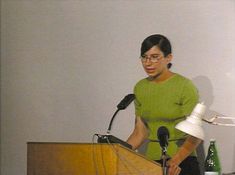
Das ästhetische Feld, Vorträge zu Praxisformen der Kunst, 1992
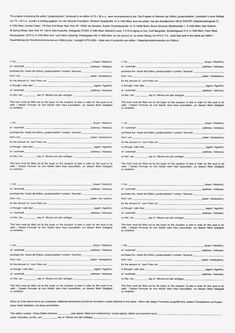
Formular, 1997

Inaugural Speech, 1997

Kunst muss Hängen, 2001

Kunstvermittlung, 1995
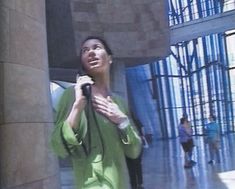
Little Frank and His Carp, 2001
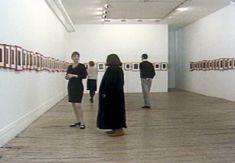
May I help you?, 1991

Museum Highlights: A Gallery Talk, 1989
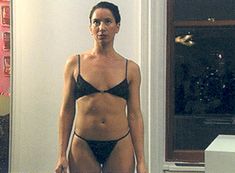
Official Welcome (Kunstverein Hamburg, September 9, 2003), 2001

Ohne Titel, 2003

Reporting From São Paulo, I'm from the United States, 1998

Temporarily Possessed, (Luc Lepère with Etant d'Art Pour Locataire by Gordon Matta-Clark ...), 1995
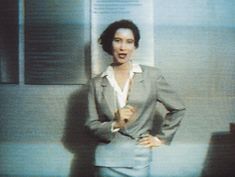
The Public Life of Art: The Museum, 1988
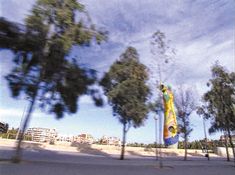
Una Introducció a la Fundació Tàpies, 1995
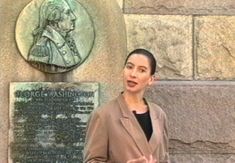
Welcome to the Wadsworth: A Museum Tour, 1991